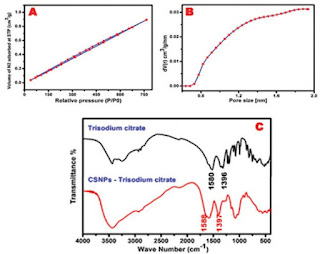Toll-Like Receptor-4, Synthesis is Regulated by JNK Signaling, by Three Glucocorticoids Isoforms and by Three Interferons Isoforms, also its Advantages in Activities Depending on the Containment from Arg, Proline and Hydrophobic Amino Acids in its Compositions: OAJBS Publishers
Toll-Like Receptor-4, Synthesis is Regulated by JNK Signaling, by Three Glucocorticoids Isoforms and by Three Interferons Isoforms, also its Advantages in Activities Depending on the Containment from Arg, Proline and Hydrophobic Amino Acids in its Compositions by Ashraf Marzouk El Tantawi* in Open Access Journal of Biomedical Science (OAJBS)
Toll-like receptor-4 (TLR4), synthesis is regulated by JNK signaling, by three glucocorticoids isoforms, and by the three interferons isoforms, also depending on availabilities of LPS & on long fatty acids chains with Arg and proline availabilities. For performing and running the mitochondrial oxidative processes for producing fatty-acyl-CoA-synthetase followed by fatty-acyl-CoAsynthase followed by fatty-acyl-CoA-phospholipase productions for linear TLR4 active beta-subunits which will be transformed into TLR4 -alpha upon phospholipase effects, which will follow phosphorylation process (alpha-oxidations) for generate Guanosine triphosphate cyclopyrrolone (GTP-Chase) subunits which supposed to contain specific hydrophobic amino acids including Arg, Tyr, leu, proline…. etc., which is the rate-limiting enzyme for tetrahydrobiopterin (BH4) synthesis, which is essential for inducible iNOS from fatty-acyl-CoA-synthase upon the nitric oxide-synthase (NO-S) regulations effects. Proline can accelerate anabolic oxidative processes by OPA1 enzymes and provides site-specific flexibility for collagen synthesis in vivo, and. Plays a necessary important role in TLR4 and TGF-gamma/beta/& alpha synthesis and activities, where the presence of proline in IFN-gamma, in TLR4 genes and in IFN-beta will accelerate oxidative OPA1 anabolic processes and direct the flow of biological processes to proliferations of plasma-membranes, collagen synthesis and blood platelets biosynthesis. Vitamin E & K-dependent protein C are the key components of anticoagulant serine protease, And therefore vit E and vit k are providing specific advantages to TLR4 synthesis and modulated first in vivo as proper fatty-acyl-CoA-synthetase subunits (gamma-subunits) then modified fatty-acyl-CoA-synthase subunits upon synthase effects on gamma-subunits for producing IL-beta upon which will promote linear TLR4 upon both synthase and phospholipase effects for starting proliferation steppes started by catalyzing Arg for producing GTP-Chase and citrulline which the main basis for Erythropoietin productions, for Plasma membrane synthesis… etc. Both IFN-beta and glucocorticoid-beta are designed anti-inflammatory subunits are depending on each other’s and on the activities of OPA1 -synthase enzyme for producing the long fatty acyl-CoA-synthase (Beta-subunit) with specific compositions and sequences from amino acids which can determine their advantages in immunity functions eg. their containment of try, proline, Arg, gly. etc., where, both glucocorticoid-beta and IFN-beta can recover each other’s in their different tissues.
https://biomedscis.com/fulltext/toll-like-receptor-4-synthesis-is-regulated-by-jnk-signaling-by-three-glucocorticoids-isoforms-and-by-three-interferons-isoforms.ID.000316.php
To Know More About Open Access Journal of Biomedical Science Please Visit: Biomedscis
Are Click on: https://Biomedscis.Com/


Comments
Post a Comment